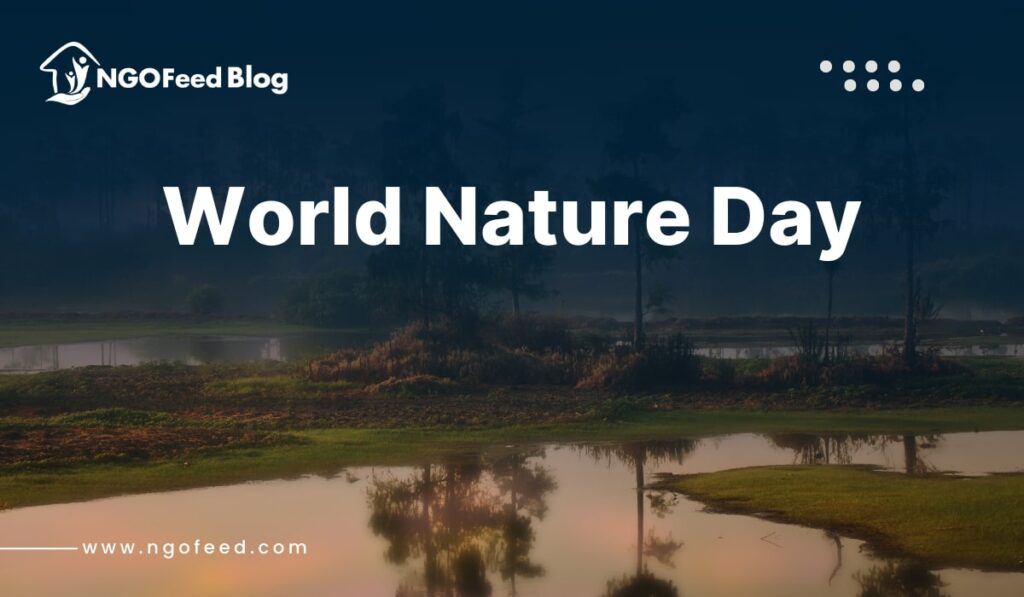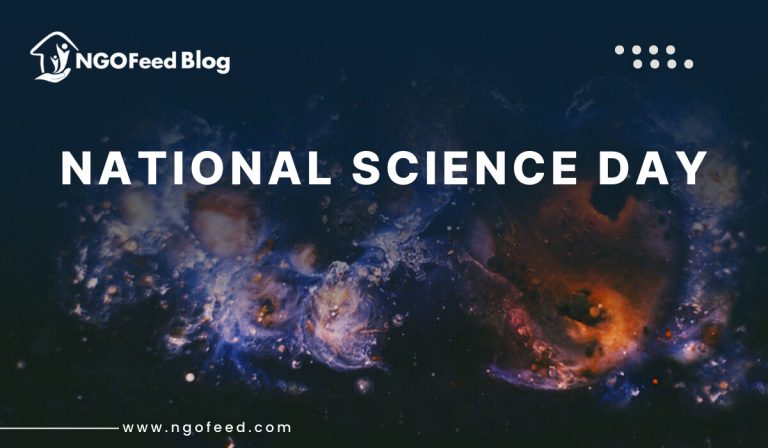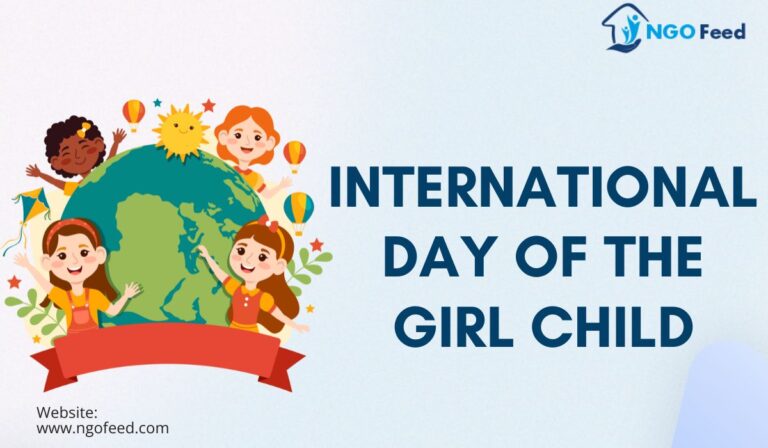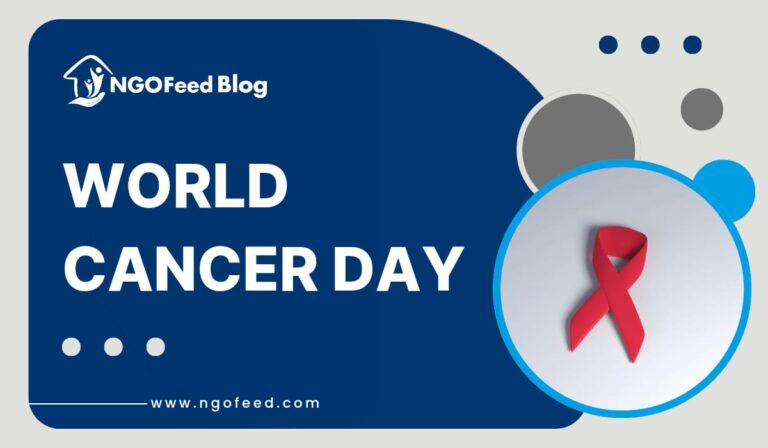World Nature Day 2025: Nature is a precious gift to all living beings on Earth. It is the primary source of all the essential resources to sustain life. Provides all inhabitants with clean air to breathe, fresh water to drink, and food to eat on the planet. This underscores humans ‘ obligation to protect and conserve these essential natural resources to balance the ecosystem.
That is why we celebrate World Nature Day every year on October 3, as a tribute to nature’s invaluable contribution to our lives and a reminder to humankind to safeguard Mother Nature.
Table of Contents
The Importance of Nature in our lives
To understand the importance of nature, we must identify what nature is. Nature is the world, including life and non-life. Nature refers to the flora and fauna, which are the plants and animals, the life. Nature is the non-life, the mountain, the river, the landscape. Everything that is not man-made and comes naturally on the planet.
The invaluable resources that provide us with food to eat, water to drink and air to breathe for our physical well-being. In addition, nature is also the sustainer of our mental well-being. Mother Nature not only helps to nourish our bodies but also our souls. The precious hug of nature reduces our mental stress, anxiety and helps us to cherish life with serenity and happiness.
Human Threats to the Ecosystem
Although there is no contribution of humans in creating nature, there are great interventions of humans to destroy the biodiversity of nature. Due to some humans’ activities against nature, the sustainability of the ecosystem is now in question.
Severe ongoing man-made threats to nature are:
Also Read: What Is Climate Anxiety and How NGOs Can Respond
Exploitation of natural resources
Exploitation or over-exploitation refers to the unsustainable use of natural resources. The non-renewable resources, fossil fuels (coal, oil, gas), minerals, iron, uranium, etc., are largely used for industrialisation, transportation and other activities
These natural substances are limited on this earth because their formation takes millions of years. They are the primary source of energy used for daily activities, and humans are dependent on them. Depletion of this energy can lead to a drastic change in lifestyle, and the survival of human beings on this earth will be impossible.
Pollution:
Pollution is the result of man-made action on the natural substances like air, water and land. Due to various ways of human consumption and exploitation of natural resources, like land filling, waste disposal, industrialisation, transportation, etc., leading the contaminated air, polluted water and deteriorated land.
It is not only the exploitation of nature but also risking our own health. Consuming such contaminated water or breathing in the polluted air are the reasons the world is facing right now: strange diseases and premature deaths.
Deforestation
Deforestation refers to cutting down forests for industrial purposes. Unaware of or ignoring the result of such activity, humans continue this activity. This is not only a risk for human life but also for wildlife. The forest is the home of wildlife habitats. Cutting down the forest makes them displaced from their home, and they become extinct over time.
As per the report, the world loses approximately six million hectares of forest each year.
The forest keeps the greenhouse gas, like carbon dioxide (CO2), in balance. But as the trees are cut down, they release the carbon dioxide that mixes in the atmosphere, increasing the level of global warming. Additionally, decreasing the level of oxygen in the air. Due to such activity, the greenhouse gas emissions increased each year, leading to serious conditions like climate change.
Also Read: Role of Indian NGOs in UN SDGs
Climate change
Climate change refers to the significant shifting of the weather, like extreme weather conditions, rising temperatures and sea levels. That includes melting ice, floods, droughts and wildfires. This is happening due to the emission of greenhouse gases (Carbon dioxide, Methane, Nitrous oxide, Ozone) that are primarily caused by human activities.
Human activities include: burning fossil fuels to generate electricity, producing energy for industrialisation and cutting down forests that release greenhouse gases, making the globe warm. This eventually leads to unconditional change in the climate.
Conservation and Restoration of Natural Resources
Natural resources are the reason we are surviving on this earth. They are provided to all living beings naturally to survive in any worldly condition. However, some resources are finite on earth and their formation may take decades of decades. Which is why we need to understand the natural formation and its conservation before it’s too late.
We humans are dependent on natural resources and over-consuming them because our needs have no limitation. As urbanisation is in demand with the development of technological industries. However, if we add sustainability to our activities, there is a chance to survive in the present without compromising the future.
Such ways are the restoration of the natural substance by replacing it with renewable energy, like solar or wind. Reforestation or afforestation of forests to conserve the wildlife habitats. Overall, adopting sustainability over luxury.
Also Read: UNDP 2025 Climate Resilience Goals in India and Africa
The Role of the Individual in World Nature Day 2025
The role of the individual is very important in preserving nature. The local people are responsible for their surroundings. Individual steps, like using eco-friendly and sustainable products, can help protect the environment. Stopping inappropriate waste disposal to avoid landfills. Restoring water, reducing plastic pollution use, practising recycling and planting new trees are the small steps to bring a big difference.
The Role of Government and NGOs in World Nature Day
The roles of the government and NGOs in environmental protection are vital. They have access to the resources and power that common people do not.
The government can create and enforce laws and regulations to control environmental damage. It can create environmental policies to encourage citizens to practice sustainability, ensure proper disposal of wastes and hazardous chemicals, provide financial support for environmental research and studies, and cooperate with global organisations to take action against issues like climate change.
NGOs, on the other hand, can work individually to promote sustainability in the vulnerable areas. They can arrange social events or environmental awareness campaigns to spread awareness among citizens, educate people about the importance of protecting nature, and encourage them to adopt sustainability and recycling. Additionally, by partnering with the government, they can advocate for strengthening environmental laws. To ensure reinforcement of the policies.
Also Read: The Role of Greenpeace India in Environmental Research and Advocacy
The Importance of Celebrating World Nature Day
World Nature Day is the day of celebrating nature’s contribution to our lives, and a reminder to us of our responsibility toward nature. The importance of celebrating this day is to dedicate a day to our Mother Nature, whose contribution to our lives is imperative.
On this day, the world is gathered together to spread awareness of environmental protection. To announce a call for action against the exploitation of nature, deforestation, and to safeguard the endangered species. Disseminate knowledge and ideas to educate people about the ongoing environmental challenges and the necessity of conserving natural resources. Shares success stories of the conservation of wildlife to inspire people. Adding to that, on this day, people from every corner of the world plant new trees to promote plant restoration. This enhances a more resilient ecosystem of the future.
Conclusion
World Nature Day is not only a day to celebrate nature, but also a reminder of the responsibility humans have towards the Earth. To protect the invaluable natural resources that are finite on the planet. Because, due to their depletion, the sustainability of life on Earth can become a question. Essentially, the world celebrates Nature Day with due diligence and care to restore the precious natural resources. To maintain the balance of environmental sustainability. This is not only a call for action to safeguard nature but also to preserve the existence of life on earth. It is an oath to conserve the beauty of nature for a better tomorrow.
Also Read: Role of UNEP in Environment
Frequently Asked Questions (FAQs)
When is World Nature Day?
World Nature Day is celebrated every year on the 3rd day of the month October.
Who first started to celebrate World Nature Day?
World Nature Day was instituted by the World Nature Organisation (WNO) on 3rd October 2010.
How important is it to celebrate the day?
Celebrating World Nature Day is critically important to spreading awareness and educating people about the environmental challenge, and encouraging a call for action against it.
What is the role of NGO in celebrating World Nature Day?
NGO play a crucial role in celebrating World Nature Day by raising awareness, organising events or campaigns, working with the local community on hands-on projects and advocating for policy protection.
How can we contribute to protecting the environment?
To protect the environment, we can contribute in small steps like planting trees, practising recycling, adopting sustainability in our regular life and spreading awareness among our surrounding people.









